- Need Technical Assistance? SCTRI2024@getvfairs.io
 January 11, 2024 08:45 am
January 11, 2024 08:45 am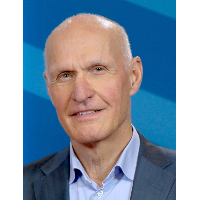
Peter Kunneman
Executive Coach
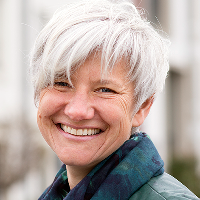
Patricia Aerts
BA, Organizational Development Coach
On behalf of the Conference Organizing system, Conference Co-Directors Peter Kunnenman and Patricia Aerts, will welcome all participants to the conference. They will orient the group to norms of the conference and provide information to navigate the online conference platform and troubleshoot if needed.
 January 11, 2024 09:00 am
January 11, 2024 09:00 am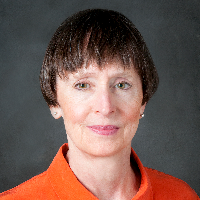
Susan P. Gantt
Ph.D., Psychologist
SCT’s functional subgrouping enables teams to work with differences so that the differences can become resources for decision-making. Functional subgrouping not only strengthens decision-making but also lowers the tension and fighting that differences easily stimulate. This workshop introduces both the theory and experience of using functional subgrouping in decision-making. These four sessions build on each other and we require attending all four sessions if you choose this track.
Goals:
 January 11, 2024 09:00 am
January 11, 2024 09:00 am
Rowena Davis
MSc, Organizational Consultant
Role, Goal and Context and Roles in Our Person-as-a-System are two practical SCT maps. They help make sense of how we co-create the dynamics that emerge as we take up our roles in organizations. They offer guides when we react to differences that are too different and give pointers to increasing our satisfaction and energy at work. These two sessions build on each other and we require attending both if you choose this track.
Goals:
 January 11, 2024 09:00 am
January 11, 2024 09:00 am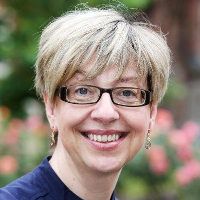
Annie MacIver
MA, Social Work Consultant
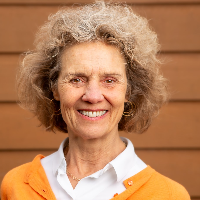
Hella Ritz, Drs.
Team and Individual Coach, OD Consultant
The workshop will offer participants an opportunity to explore the default survival roles triggered in leaders and managers working in complex organisational systems. We will work together to understand what triggered specific survival roles, discovering ways to re-stabilise so all our resources are available in our work roles. The lens of the theory of living human systems and SCT will underpin the workshop content.
Goals:
 January 11, 2024 09:00 am
January 11, 2024 09:00 am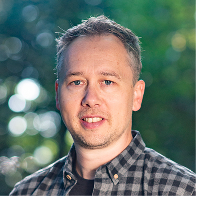
Diederick Janse, MSc
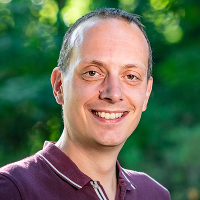
Erik Slotboom, MSc
Self-management can be defined as the practice of distributing decision-making throughout an organization in a structured way, organized around a common purpose. In this workshop, we will use SCT theory to explore how self-management strengthens membership behaviour in an organization, particularly as compared to conventional ways of organizing.
Goals:
 January 11, 2024 10:15 am
January 11, 2024 10:15 am January 11, 2024 10:45 am
January 11, 2024 10:45 am
Peter Kunneman
Executive Coach
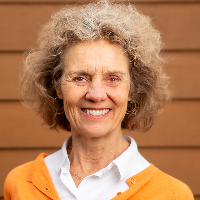
Hella Ritz, Drs.
Team and Individual Coach, OD Consultant
In this workshop we will look with an SCT lens at manifestations of irritation and anger in the workplace. When is it functional and when not? You will learn how to draw a flow chart of Fight Energy that helps to understand the two ways it gets enacted and the one way you can change the flow. Your challenge during the workshop is to learn how to convert the energy that is bound in your irritation to the goal of the team.
Goals:
 January 11, 2024 10:45 am
January 11, 2024 10:45 am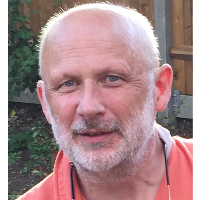
Mike Maher
MA, PGCE, Psychotherapist
In this workshop we will explore two pathways for reducing stress. The first is to identify objective stressors and systemic ones in the organization, which leads to a fork-in-the-road: can you accept these conditions and these norms, or is it possible to begin to influence the system? We will consider this from a Neuroaffective & SCT perspective. The second is to expand your grounding skills, useful when transitioning into and out of work contexts, hybrid and in person. This increases your capacity to navigate from your centered self in your work role(s).
Goals:
 January 11, 2024 10:45 am
January 11, 2024 10:45 am
Susan P. Gantt
Ph.D., Psychologist
SCT’s functional subgrouping enables teams to work with differences so that the differences can become resources for decision-making. Functional subgrouping not only strengthens decision-making but also lowers the tension and fighting that differences easily stimulate. This workshop introduces both the theory and experience of using functional subgrouping in decision-making.
Goals:
 January 11, 2024 10:45 am
January 11, 2024 10:45 am
Rowena Davis
MSc, Organizational Consultant
Role, Goal and Context and Roles in Our Person-as-a-System are two practical SCT maps. They help make sense of how we co-create the dynamics that emerge as we take up our roles in organizations. They offer guides when we react to differences that are too different and give pointers to increasing our satisfaction and energy at work. These two sessions build on each other and we require attending both if you choose this track.
Goals:
 January 11, 2024 12:00 pm
January 11, 2024 12:00 pm January 11, 2024 12:45 pm
January 11, 2024 12:45 pm
Susan P. Gantt
Ph.D., Psychologist
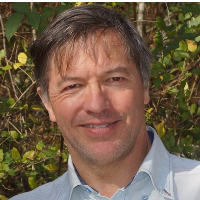
Ray Haddock
MBChB, M.MedSc, FRCPsych, UKCP Registered Psychotherapist, Group Analyst
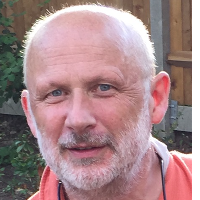
Mike Maher
MA, PGCE, Psychotherapist
The conference as-a-whole group, open to all, meets at the end of each Conference day to work as a whole-system using functional subgrouping with the goal of discovering what emerges in this larger learning system.
 January 12, 2024 09:00 am
January 12, 2024 09:00 am
Susan P. Gantt
Ph.D., Psychologist
SCT’s functional subgrouping enables teams to work with differences so that the differences can become resources for decision-making. Functional subgrouping not only strengthens decision-making but also lowers the tension and fighting that differences easily stimulate. This workshop introduces both the theory and experience of using functional subgrouping in decision-making.
Goals:
 January 12, 2024 09:00 am
January 12, 2024 09:00 am
Patricia Aerts
BA, Organizational Development Coach

Janneke Maas
MSc, BA, Organizational Development Coach
In this workshop, we focus on the importance of membership in contributing to the shared collective purpose of an organization or team. SCT identifies that our member role is the system to work from, if we want to both develop our person system and at the same time influence our work roles and relations in our organization. We see that organizations tend to overlook this member system and most effort (time and energy) is directed to personal development of members. In this workshop we will identify restraining forces to take up your member role in your context (e.g., with a colleague, team, project, management team, etc) and undo them. This is a model of first experiencing development of your member role yourself before bringing your knowledge to another context.
Goals:
 January 12, 2024 09:00 am
January 12, 2024 09:00 am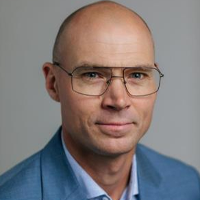
Daniel Nordlander
Organizational Consultant and Licensed Psychologist
In this interactive workshop, we will explore how we (Sandahl Partners) bring SCT skills and resources to the working life arena in Sweden. With examples we will show an adaptation of SCT language that is appreciated and put to use in various different Swedish organizations, private and public. The group will be introduced to skills concerned with the integration of differences. The group will get a chance to explore similarities with how these skills are named and communicated in their work or life contexts. Participants will also get the opportunity to explore differences that arise in relation to this familiar or unfamiliar language.
Goals:
 January 12, 2024 09:00 am
January 12, 2024 09:00 am
Jobbeke de Jong
Organizational Psychologist, Founder Tachles, Author
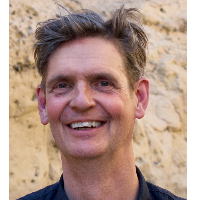
Mark Bouman, MSc
Sr OD Consultant and Teamcoach, Founder The Art of Learning
In the workshop, we explore the dynamics that arise in an organization or team when in a system the goals and roles are unclear. Lack of clarity creates noise in the communication and in the patterns of interaction between team members. A lot of this takes place below the surface. According to SCT theory, the patterns of interaction determine how much energy from the system is available for working on the stated goals of the system. We will explore how to see these patterns. We learn different interventions to influence them and make more energy available for work and how one can use oneself as a voice for the system-as-a-whole.
Goals:
 January 12, 2024 10:15 am
January 12, 2024 10:15 am January 12, 2024 10:45 am
January 12, 2024 10:45 am
Susan P. Gantt
Ph.D., Psychologist
SCT’s functional subgrouping enables teams to work with differences so that the differences can become resources for decision-making. Functional subgrouping not only strengthens decision-making but also lowers the tension and fighting that differences easily stimulate. This workshop introduces both the theory and experience of using functional subgrouping in decision-making.
Goals:
 January 12, 2024 10:45 am
January 12, 2024 10:45 am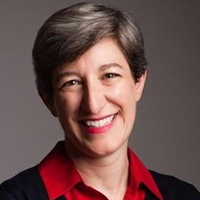
Alida Zweidler-McKay
MBA, Consultant and Coach
Outside of formal training sessions, there are rarely opportunities to provide someone with a full introduction to Systems-Centered theory and methods. Moreover, the norm for applying SCT is that we work with ourselves first, so that we embody the principles before attempting to bring them to others. In this workshop, we will dig into what that could look like. How can you quietly incorporate the spirit of Functional Subgrouping and other SCT methods into your day-to-day interactions, without the need to teach or explicitly describe what you’re up to?
Goals:
 January 12, 2024 10:45 am
January 12, 2024 10:45 am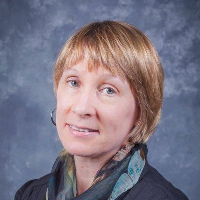
Michelle Lynskey
Ph.D., Executive Coach and OD Consultant
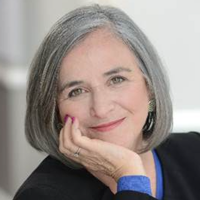
Beulah Trey
Ph.D., Executive Coach and OD Consultant
From a Theory of Living Human Systems (TLHS), we know that clear roles, goals, and context are essential for organizational success. In this workshop, we will present how we use theory and methods from SCT TLHS as the foundation for our Hierarchical Intelligence methodology. We will present a case that demonstrates the stereotypical survival roles and the role lock between executives and senior leaders and how we work with teams as they fully take up their functional roles.
Goals:
 January 12, 2024 10:45 am
January 12, 2024 10:45 am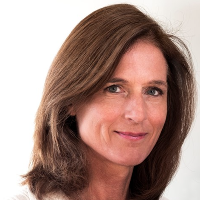
Katarina Billman
MS, Organizational Psychologist
10 minute coaching is a method of brief structured coaching meetings for leaders and members of organisations. The method, created by Katarina Billman and Curt Engquist, is inspired by Systems-Centered theory and its applied skills. In this workshop you will first get an introduction to the method and how it links to Systems-Centered theory. Second, you will be guided through the six steps of the method, and finally have the opportunity to initiate a 10 minute coaching meeting with a peer participant.
Goals:
 January 12, 2024 10:45 am
January 12, 2024 10:45 am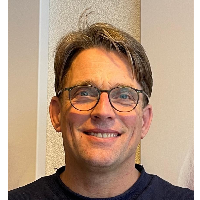
Bernd Postma
MBA

Peter Kunneman
Executive Coach
This workshop features a panel of 4-5 clients who have experience in working with SCT in their organization (helped by SCT coaches). The panel members will make a force field of driving and restraining forces of working with SCT. As a participant, you will be able to first ask questions and then subgroup around the opportunities and pitfalls of working with SCT in organizations.
Goals:
 January 12, 2024 12:00 pm
January 12, 2024 12:00 pm January 12, 2024 12:45 pm
January 12, 2024 12:45 pm
Susan P. Gantt
Ph.D., Psychologist

Ray Haddock
MBChB, M.MedSc, FRCPsych, UKCP Registered Psychotherapist, Group Analyst

Mike Maher
MA, PGCE, Psychotherapist
The conference as-a-whole group, open to all, meets at the end of each Conference day to work as a whole-system using functional subgrouping with the goal of discovering what emerges in this larger learning system.